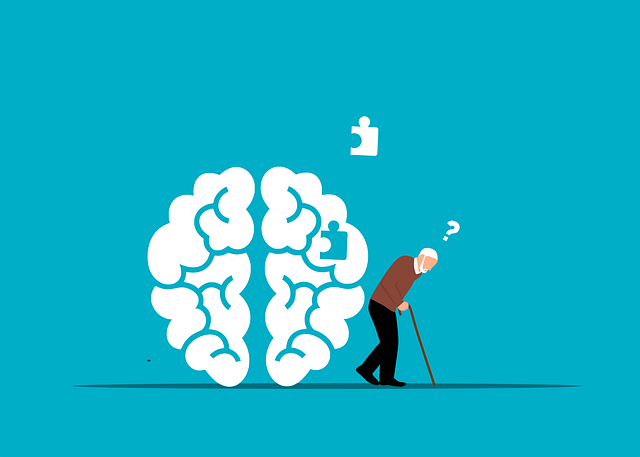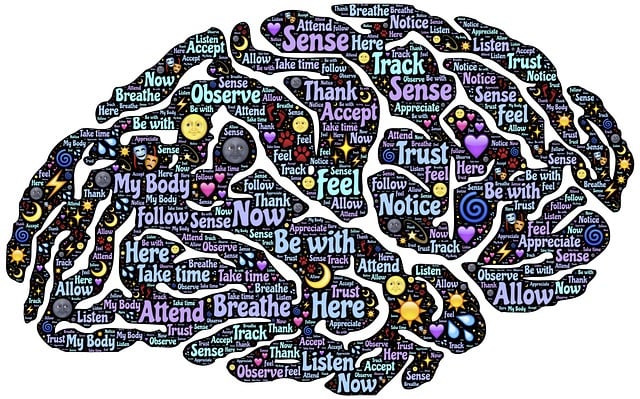Wheat Ridge Gambling Therapy offers specialized therapeutic services to combat gambling addiction, focusing on emotional well-being and self-awareness exercises. This holistic approach reduces stigma by promoting open discussions in a non-judgmental environment. Educational initiatives led by experts raise mental health awareness, target stereotypes, and foster emotional intelligence. Positive media representation and public campaigns further reduce stigma while community engagement challenges societal norms and promotes inclusive support networks.
Mental illness stigma remains a significant barrier to seeking treatment, with severe consequences for individuals and communities. This article explores targeted efforts to reduce mental health stigma, examining its profound impact on those affected. We present a case study of Wheat Ridge Gambling Therapy, highlighting successful strategies in combating stigma within their programs. Additionally, we delve into educational initiatives, media representation, and community engagement as powerful tools in challenging stereotypes and fostering supportive environments for improved mental well-being.
- Understanding the Impact of Stigma on Mental Health
- Wheat Ridge Gambling Therapy: A Case Study in Stigma Reduction
- Educational Initiatives for Challenging Stereotypes and Misconceptions
- Media Representation and Its Role in Shaping Public Perception
- Community Engagement and Support Networks for Stigma Elimination
Understanding the Impact of Stigma on Mental Health

Wheat Ridge Gambling Therapy: A Case Study in Stigma Reduction

Wheat Ridge Gambling Therapy stands as a beacon of hope and a case study in stigma reduction for mental health issues, particularly those related to gambling addiction. This therapeutic approach focuses on empowering individuals through self-awareness exercises designed to unravel the complex web of emotional triggers associated with problematic gambling behaviors. By promoting emotional well-being, the therapy fosters an environment where clients can openly discuss their struggles without fear of judgment or stigma.
Through innovative Emotional Well-being Promotion Techniques, Wheat Ridge Gambling Therapy offers a safe space for individuals to embark on their journey towards recovery. The program’s holistic nature, which integrates Mental Health Awareness into its core practices, has proven effective in helping participants regain control over their lives. By addressing the root causes and societal influences contributing to gambling addiction stigma, this therapy model paves the way for a more accepting and supportive society where those seeking help can find the courage to take that first step.
Educational Initiatives for Challenging Stereotypes and Misconceptions

Educational initiatives play a pivotal role in challenging stereotypes and misconceptions surrounding mental illness. By integrating programs that focus on increasing awareness and understanding, communities can significantly reduce the stigma attached to various psychological conditions. Workshops, seminars, and interactive sessions led by healthcare professionals, such as those offered by Wheat Ridge Gambling Therapy, have proven effective in providing accurate information about mental health. These initiatives often target schools, workplaces, and community centers to reach a wide audience.
One key aspect of these educational efforts is fostering emotional intelligence—the ability to recognize and manage one’s own emotions and understand the emotions of others. Enhancing emotional intelligence can help individuals navigate interactions with those experiencing mental illness more empathetically. Additionally, integrating topics like depression prevention and addressing cultural competency among healthcare providers ensures that support systems are equipped to offer effective, non-judgmental care. These combined strategies work towards creating a more supportive environment where individuals can openly discuss their mental health without fear of stigma or discrimination.
Media Representation and Its Role in Shaping Public Perception

The media plays a pivotal role in shaping public perception about mental illness, often influencing societal attitudes and behaviors. Portrayals in films, television shows, and news coverage can either perpetuate harmful stereotypes or foster understanding and empathy. Positive media representation of individuals with mental health conditions, such as those seeking therapy at Wheat Ridge Gambling Therapy, is crucial for reducing stigma. These narratives offer a glimpse into the lived experiences, challenges, and triumphs of people navigating their mental health journeys, thereby humanizing the issue.
Public Awareness Campaigns Development centered around mental health can benefit from strategic media engagement. By showcasing diverse stories and promoting self-care practices, these campaigns contribute to improving public awareness and understanding. Encouraging open conversations about mental well-being, including emotional regulation techniques, can help dismantle barriers associated with seeking support. This, in turn, may prompt individuals struggling with their mental health to consider treatment options, like those available at Wheat Ridge Gambling Therapy, without the fear of judgment or discrimination.
Community Engagement and Support Networks for Stigma Elimination

Community engagement plays a pivotal role in stigma reduction efforts for mental illness. By fostering open dialogues and creating supportive environments, communities can challenge societal norms that perpetuate stereotypes. Organizations like Wheat Ridge Gambling Therapy contribute to this cause by offering resources tailored to specific challenges, such as gambling addiction, which often overlap with mental health issues. These initiatives not only help individuals struggling with addiction but also educate the wider community about the complexities of mental illness and the importance of empathy and understanding.
Support networks are another crucial component in eliminating stigma. Connecting individuals who have experienced mental health struggles with peers who can relate to their journey fosters a sense of belonging and encourages positive thinking. Moreover, these networks provide opportunities for confidence-boosting activities and stress reduction methods, empowering members to share their stories and dispel myths surrounding mental illness. Such collective efforts create a more inclusive society where individuals are supported rather than stigmatized.
Mental illness stigma reduction is a multifaceted effort that requires understanding, education, and community engagement. By examining initiatives like Wheat Ridge Gambling Therapy, which offers successful case studies in challenging stigma, we can see the power of targeted programs. Educational campaigns aimed at dispelling stereotypes and misconceptions further play a crucial role in fostering empathy and acceptance. Media representation, when responsible, can shape public perception positively. Ultimately, building supportive community networks is essential to eliminating mental health stigma once and for all.








